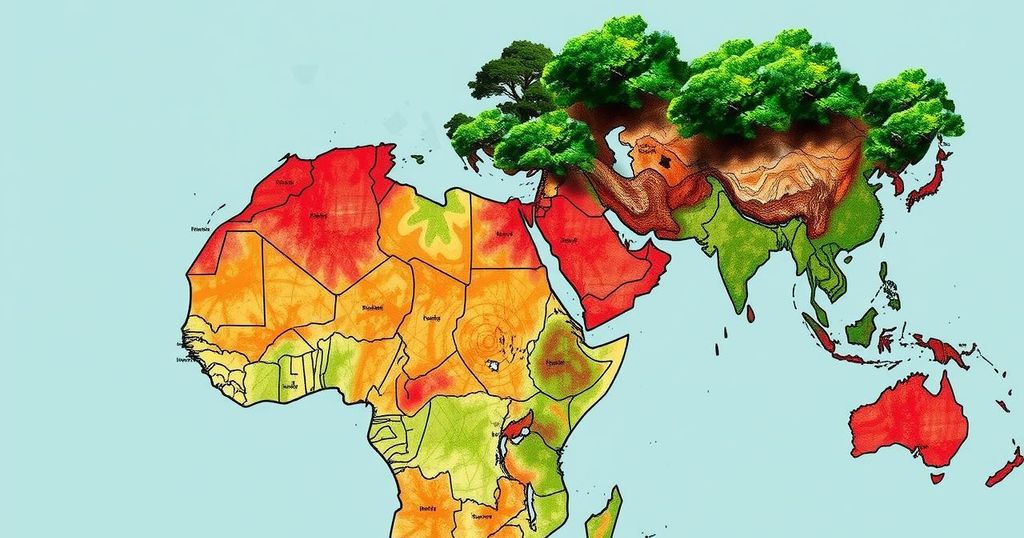COP29 has been criticized for inadequate climate financing for Africa, where a demand for $1.3 trillion annually fell to a mere $300 billion commitment. This financial shortfall undermines Africa’s ability to cope with climate change and its repercussions. Geopolitical tensions and external lobbying interests further complicated negotiations, leading to widespread disappointment among African leaders. Future actions may involve leveraging mineral resources to secure necessary financing for climate adaptation efforts.
The 29th Conference of the Parties (COP29) has been deemed a failure for Africa, particularly regarding the climate financing bid, which aimed to secure $1.3 trillion annually from developed nations to support climate adaptation in African countries. The African coalition entered COP29 with a hopeful finance demand, yet the resulting commitment of merely $300 billion per year is insufficient to address the extensive needs stemming from climate change. The minimal financing compromises the ability of African nations to adequately prepare for and respond to climate-related disasters, as demonstrated by the ongoing threat of severe weather events.
Moreover, NAM representatives expressed dissatisfaction with the COP29 outcomes. With inflation considerations, the effective value of the promised $300 billion could dwindle to approximately $175 billion by 2035, raising serious concerns about current and future climate resilience capabilities. The ambiguity surrounding the nature of the funds—whether they would be structured as grants, interest-free loans, or private investments—adds another layer of complexity regarding potential indebtedness for African nations already dealing with significant financial constraints.
Additionally, external factors hindered African countries’ negotiations. Access to critical discussions was partly dominated by fossil fuel lobbyist interests, undermining commitments to eliminate fossil fuel dependencies. Compounding this were geopolitical tensions and conflicts that diverted attention from climate priorities among several countries in the global north.
Looking ahead, it is crucial for African nations to leverage their mineral wealth, which is essential for global energy transition goals. By strategically withholding resources such as copper, lithium, and graphite, Africa could compel developed nations to fulfill their climate financing promises, transforming UN climate meetings from mere discussions into actionable initiatives to counteract impending climate crises.
The ongoing climate crisis has necessitated increased financing for developing countries, particularly in Africa, where the effects of climate change are profoundly felt. With calls from the African bloc seeking $1.3 trillion annually to combat climate-related challenges, the outcomes from COP29 have raised alarms about the continent’s preparedness. The gap between the projected needs of African nations and the financial commitments made at COP29 demonstrates the underestimation of the resources required for effective climate adaptation and mitigation strategies. Furthermore, the influence of external lobbying groups and geopolitical issues further complicate funding discussions and commitments. As COP29 closed, the implications of these financial shortfalls emerged, casting doubt on the future resilience of African countries in the face of imminent climate threats. The urgent need for a reevaluation of financial strategies and international commitments was made clear.
The COP29 climate conference outcomes have significantly disappointed African nations, revealing a stark contrast between their financial demands and what was offered. The commitment of $300 billion per year is inadequate to meet Africa’s climate adaptation needs. Moreover, factors such as geopolitical uncertainties and lobbying from fossil fuel interests contributed to the failure of substantive progress. Moving forward, African nations must leverage their natural resources as bargaining chips to demand greater commitments for climate financing, ensuring that future climate agreements yield tangible results rather than mere declarations.
Original Source: www.downtoearth.org.in






